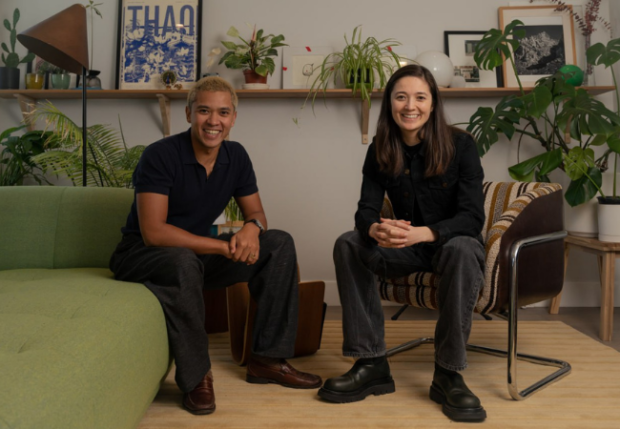Filipino experts create VANA blockchain for free data control
Filipino tech experts Art Abal and Anna Kazlauskas created the VANA blockchain to allow the public to control their data.
They realized that accessing data will become more challenging as artificial intelligence advances. Soon, it may lead to a future where only a few tech giants control our data.
READ: How AI and blockchain will shape our digital future
In response, Abal and Kazlauskas created VANA to secure the digital future of Filipinos. They are willing to overcome every hurdle to establish a new benchmark for future generations.
How did VANA blockchain start?

VANA’s story started with Art Abal, who was born in Illigan to native Cebuano parents. Eventually, he worked as a corporate lawyer, letting him see how data and the law interact.
He learned the societal effects of artificial intelligence, which enabled him to create impactful innovations at Appen. Later, he moved to Harvard where he deepened his interest in AI at the Belfer Center.
Key moments came when he advised the Prime Minister of Timor-Leste on policy and legal matters. Moreover, he learned more when he helped Nespresso rethink data’s role in monitoring supply chain effects on local Columbian communities.
On the other hand, Anna Kazlauskas, whose mother is from Pampanga, viewed the world through data since childhood.
Eventually, she cultivated experiences in Ethereum crypto mining, central banks, and international organizations.
Abal and Kazlauskas attended a class at the MIT Media Lab on building technology for emerging markets. They wanted to uplift communities often neglected by AI advancements, so they launched TOCA.
It allowed people in low-income areas to label data with their phones and demonstrated the Philippines’ potential to bridge the AI divide.
Later, Abal and Kazlauskas launched VANA, which they named after the term “Nirvana.” Buddhists believe it is a state of existential freedom that they could attain by following their teachings.
Similarly, Nirvana provides Filipinos with the freedom to create, share, and earn money from AI without interference from huge corporations.
READ: How to use AI art ethically
The VANA blockchain gives Filipinos full control over their data to benefit directly. Nowadays, it has achieved global success by drawing over 140,000 participants from the Reddit Data DAO in a week.
VANA allows AI to better understand local cultures and languages to promote more inclusive technologies that represent the community.
What are the VANA blockchain’s features?
revolution is coming pic.twitter.com/x9a6IdUH4Z
— vana (@withvana) September 10, 2024
The VANA blockchain website defines the platform with the following statement:
“Vana is a distributed network for private, user-owned data, designed to enable user-owned AI. Users own, govern, and earn from the AI models they contribute to.”
“Developers gain access to cross-platform data to power personalized applications and train frontier AI models.”
VANA’s devs understand the value of training data for AI, so they launched Data Liquidity Pools to promote its development.
The DLP rewards AI developers, validates their contributions, and lets others add data to it. Also, the VANA promotes data privacy with non-custodial data.
As the name suggests, it handles data without the need for a custodian or a different person. Log in with your wallet, and you’ll see all your data and funds.
It removes the need to provide sensitive information for security reasons while protecting your digital assets.
READ: Crypto K-pop links culture and the blockchain
These features enable the VANA blockchain to lead the charge in democratizing data control for everyone. Soon, it may leave an enduring legacy for generations.
“This is one direct way in which Filipinos can really participate in this emerging data economy,” Abal stated with conviction.